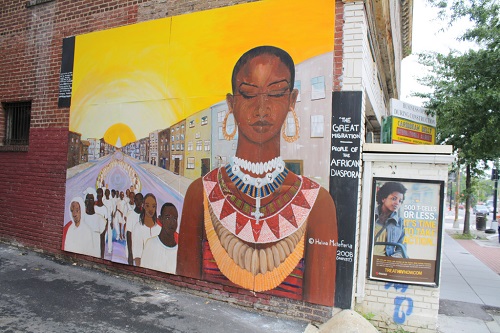flickr photo
By
Brian Minga Amza
The relation between men and women has always been a result of historical materialism. This however does not mean that the nature is completely ostracized, it is the combination of the two which gave the need for humans to stop hunting and begin land work, to stop eating raw food and use fire, etc…
Are men and women equal? Before trying to answer the question, let us understand first that the concept of equality of the sexes is a relatively new phenomenon. The notion of equality of sexes is abstract, hence both sexes face social challenges.
In the western world, this struggle is associated with the end of 19th century, while in Africa, the question was never asked and there are various reasons for this.
In the western hemisphere women were treated (it is important to specify, these are upper and middle class white women) as the inferior sex and were excluded from taking part in public life. These beliefs find certain justification in Christianity (Eve born out of Adam’s rib), thus enforcing misogynist traditions and a number of philosophical ideas also. Aristotle, a 4th century BC Greek philosopher, in his book “Politics” wrote “the relation of male to female is by nature a relation of superior to inferior and ruler to ruled.”
Such a belief was unquestionable even with a large number of contradictions, for centuries the misogynistic tradition expanding as a model throughout Europe. It is important also to be aware of the role played by the race and social class at this particular time.
In Africa, 2,000 years BC, precisely in ancient Egypt, the status of women had a major contrast to that of many western women. The notion of equality was nonexistent, women in Egypt did not have to be told they were equal to men, they enjoyed the same rights as men. From the peasantry to the upper class, women did not face social barriers because of their sex, this translated into Egypt having female Pharaohs at some point in time.
Often taken for granted, one needs to know that the concept of rights at the early stage of feminism in the 19th century excluded all non European women in Europe and its colonies.
African women, by the nature of things, were excluded not only by the ideology of race supremacy but most critically oppressed by the upper white coloniser women who were oppressed by their own husbands. In Africa, the upper class oppressed white women were considered children by European law, though had power over men and women in Africa. It is clear to establish that in any wave of feminism, the history, reality and expectation of black African women were never taken into account.
Africa, as mother continent of humanity, paved the way for women thousands of years ago before western civilisation. Afirca is the sole founder of feminism not a certain Christine de Pizan. Africa, through its ingeniosity and constant mutation, should bring the essential element to the current intricacy.
Conversely, many African women scholars are initiating a new setting which elevates and empowers black women not only socially, but taking into consideration the multiple characteristics and stance of African societies. There is therefore a need for Africa to find its own feminism which takes into account its historical materialism. Until then, the ignorance, lies and perception of western feminism will remain a primary misapprehension and enforcement of supremacy and struggle of the sexes.
Whatever one’s view on the problem of inequality, no serious studies can claim superiority of one sex to another across the world at one time or another. I find fault with the idea of conceptualising what feminism should look like hence commonalities and variations in understanding gender issues are still much attached with culture, ultimately this altering with the complex experiences faced by African women in the continent.



No Comments Yet!
You can be first to comment this post!